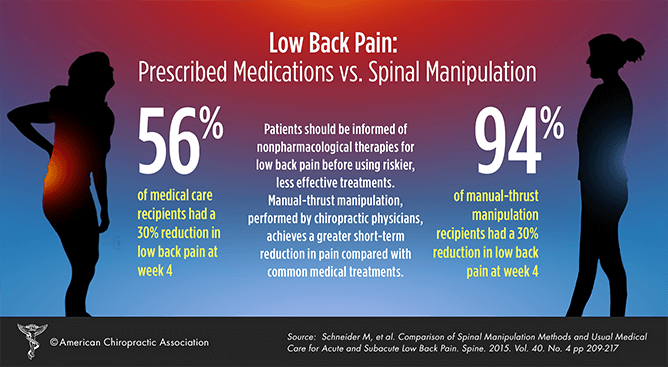Take Care Of Your Back By Discovering The Effect Of Your Diet Plan On Discomfort Monitoring-- Find Out Which Foods Can Provide Alleviation And Which Ones To Steer Clear Of
Take Care Of Your Back By Discovering The Effect Of Your Diet Plan On Discomfort Monitoring-- Find Out Which Foods Can Provide Alleviation And Which Ones To Steer Clear Of
Blog Article
Short Article By-Russo Guldborg
When it involves handling your back pain, the food options you make can considerably impact how you feel on a daily basis. Envision having the ability to alleviate your discomfort just by readjusting what you eat. By understanding the function of nutrition in neck and back pain monitoring and knowing which foods to include or avoid, you can take proactive actions towards a much healthier and more comfortable way of living. The link between nutrition and back health and wellness is a lot more extensive than you may understand-- let's discover just how particular foods can either relieve or exacerbate your neck and back pain.
Significance of Nourishment in Neck And Back Pain
Nourishment plays an essential role in taking care of back pain. Your diet regimen can substantially impact inflammation levels and total pain degrees in your back. Consuming a well balanced diet abundant in nutrients like vitamins D and K, calcium, magnesium, and omega-3 fats can help reduce swelling and enhance bones, which are vital for back wellness.
Furthermore, maintaining a healthy weight through proper nourishment can reduce anxiety on your spine, lowering the risk of neck and back pain.
Additionally, particular nutrients like antioxidants found in fruits and vegetables can assist fight oxidative tension and advertise healing in the body, consisting of the back muscles and spine.
On back stiffness , taking in excessive amounts of processed foods, sweet beverages, and harmful fats can add to swelling and weight gain, exacerbating back pain.
Foods to Eat for Back Health
To support a healthy and balanced back, including nutrient-rich foods into your everyday dishes is crucial. Including foods high in antioxidants like berries, spinach, and kale can help reduce swelling in your back, alleviating pain and pain. Omega-3 fatty acids discovered in fatty fish such as salmon and mackerel have anti-inflammatory residential or commercial properties that can benefit your back wellness.
In addition, eating nuts and seeds like almonds, walnuts, and chia seeds gives crucial nutrients like magnesium and vitamin E, which sustain muscular tissue feature and decrease oxidative stress and anxiety. Incorporating lean proteins such as hen, turkey, and tofu can aid in muscular tissue repair and maintenance, promoting a solid back.
Don't forget to consist of milk or strengthened plant-based choices for calcium to support bone health. Lastly, why does my lower back hurt when i walk for too long with lots of water to keep your spine discs moistened and working efficiently. By consisting of these nutrient-dense foods in your diet plan, you can nurture your back and assistance overall back wellness.
Foods to Avoid for Back Pain
Choose avoiding processed foods high in added sugars and trans fats when looking for relief from pain in the back. These kinds of foods can add to swelling in the body, which may intensify pain in the back. Say no to sugary snacks like candy, pastries, and sugary drinks, in addition to fast food products like hamburgers, french fries, and fried chicken that are frequently packed with trans fats.
Additionally, steer clear of foods having high levels of polished carbs, such as white bread, pasta, and breads, as they can surge blood sugar levels and possibly intensify inflammation in the body.
It's also a good idea to restrict your intake of foods high in saturated fats, like red meat and full-fat dairy items, as they can add to inflammation. Processed foods like deli meats, chips, and packaged snacks are commonly high in saturated fats and need to be eaten in small amounts.
Conclusion
In conclusion, paying attention to your diet regimen and making wise food options can have a substantial influence on taking care of neck and back pain. By integrating nutrient-rich foods like berries, fatty fish, nuts, and lean proteins, and staying clear of processed and sweet items, you can help reduce inflammation and support overall back health. Keep in mind, what you consume plays an essential function in exactly how you really feel, so make sure to prioritize your nutrition for a healthier back.
